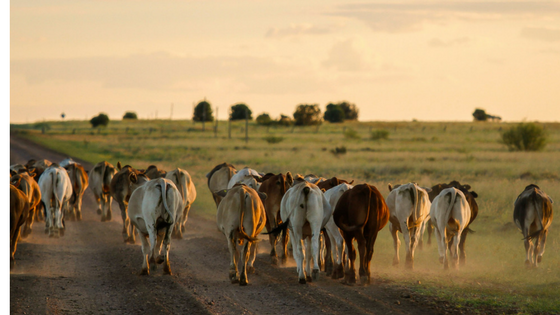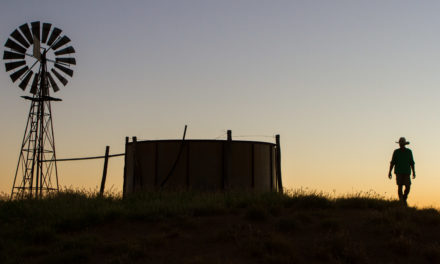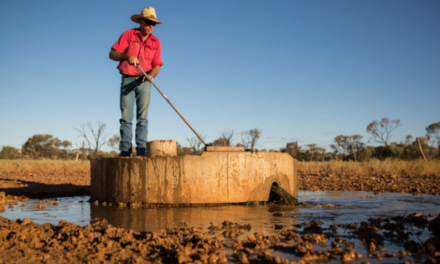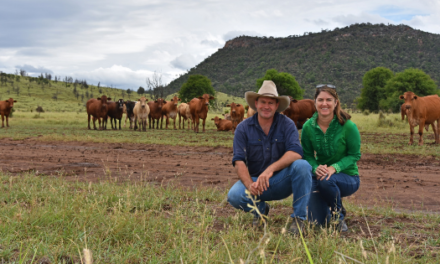Farmers can proactively negotiate Conduct and Compensation Agreements that are comprehensive and establish fair rules of engagement for all parties.
The full impacts of Coal Seam Gas activities are hard to imagine for a landholder entering into CSG negotiations with a mining company for the first time.
Understandably, landowners want to be informed and educated about what the reality of mining activity has been for other farmers, so that they can prepare for effective CSG negotiations.
Some rural areas have co-existed with mining companies for decades, however the recent boom in CSG exploration and expansion into new gas fields has caused immediate financial and emotional challenges for farmers and their communities.
There are individuals and communities who have received significant financial rewards from CSG activities. The positive financial contributions to local community projects and events has been welcomed by those community groups who continually find it harder and harder to fundraise in small regional areas.
There has, however, been disbelief, frustration and anger felt at the property level.
Not all mining companies engage landowners equally and farmers need to understand the problems that can result from CSG activity.
Landholders want to make informed decisions and there are many perceptions in the rural community about what the various impacts of Coal Seam Gas activity on farming land has been.
The challenge moving forwards is to be aware of the possible negative impacts created by CSG activity on farms and negotiate acceptable solutions to such problems in advance.
The following list gives examples of problems caused by coal seam gas activities either directly or through sub-contractors. If you are entering into negotiations with a CSG company ask yourself how you would feel about the following:
Environmental Impacts
- Dust – Dry excessive dust blowing across paddocks due to vehicle traffic.
- Weeds – Weeds found on or near access tracks, both declared, such as Parthenium and also undesirable plants landowners do not want entering the property.
- Native Animals – risks to native wildlife from vehicle traffic, water storage facilities.
- Water – Bore water impacts, quality loss and salt disposal concerns.
- Soil – Compaction and degradation concerns.
- Litter – Drink bottles, cigarette butts, plastic and general rubbish.
- Noise – Impacts of noise pollution.
- Signs – Visually unattractive and mustering concern at lower heights.
Business Impacts
- Stressed Stock – Uneducated drivers stressing stock along fencelines. Cattle jumping fences to escape vehicle pressure and landowners not being advised.
- Injured Stock – An increase in broken legged calves and other cattle due to vehicles hitting stock. Stock being killed by contractors vehicles driving at night through paddocks.
- Property Damage – Gates and grid-ends being damaged by heavy vehicles and not reported to landowners.
- Inadequate Stock Knowledge – Vehicles stopping in open gateways to take photos of the helicopter mustering a paddock and other activities can unknowingly cause disruptions and interfere with musters.
- Cultural Heritage Impacts – Removal of vegetation cover to minimise the possibility of snake bites.
- Hardwood Pegs – Survey pegs left behind are often broken by stock and can cause damage to tyres.
- Open Gates – Gates left open or not correctly chained result in stock ending up in the wrong paddock.
- Financial – Devaluation of farming land due to CSG activity is a significant concern for the future.
- Time – There is a opportunity cost for a farmer every time they deal with a CSG related issue.
- Light – High powered lighting plants create unwanted light pollution.
- Incomplete Records – Sign-in registers and wash down certificates that are lacking full disclosure of important information.
- Pressure to Sign Documents – Land Liaison Officers who pressure for documents to be signed within a short time frame. Most annoying when the documented urgent activity is not undertaken for months or years.
- Lack of Notice – Pressure to waive entry notice minimum entry time.
- Lack of Information – CSG companies who want to know a farmer’s long-term property plan but give little information about the proposed or planned CSG activities on that property.
- Poor Compensation – Hard to comprehend why a landholder is offered a compensation payment of $5000 for a 12 months access to 3.5km of road that hundreds of vehicles will use during peak times when the CSG machinery operators are being paid $1000 per day and the CSG contract labourers are being paid $600 per day.
Personal Impacts
- Loss of Control – Hard to accept other people now get to enter and undertake activities on private land. There is a new reality when you don’t know who has been on your property, what they have done on your property and why they were there.
- Stress – The impact of having so many unknown variables to deal with is overwhelming for some.
- Mental Health – The possible loss of a family home and a lifetime of achievement should not be underestimated in terms of the effect this can have on an individual.
- Security and Safety – Unknown visitors impact on family activities and security concerns
- Personal Relationships – Conflict can occur when one family member agrees to something that other family members do not agree with.
Co-existence is most successful where an established relationship is considered beneficial by both parties.
Where the farmgate experience is good and often when a local is employed as a Land Liaison Officer the outcomes seem more favourable for the farmer.
When farmers feel their business is treated with respect and professionalism by the CSG company they are dealing with, then often the smaller issues aren’t so annoying to manage.
When ongoing problems are not dealt with and concerns are ignored then the situation gets frustrating and landholders find it hard to not be annoyed by the little things.
This is a sample of actual problems faced by farmers due to coal seam gas activity. It is intended to assist farmers identify what they would find challenging to deal with in terms of disruptions to their business.
The next step for farmers entering into CSG negotiations would be to create a list of issues that they would find disruptive and frustrating and ensure make good agreements are discussed prior to a CCA being signed.





